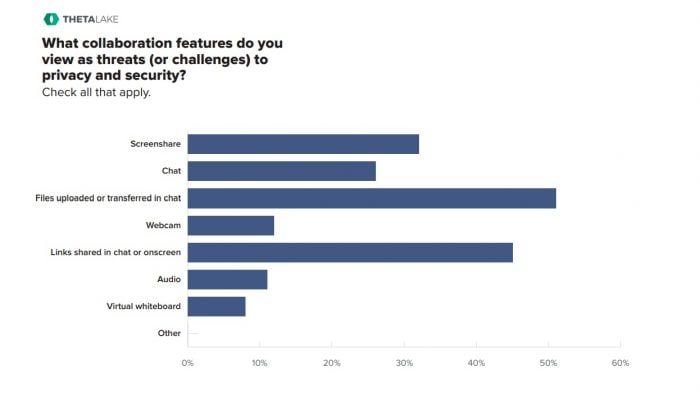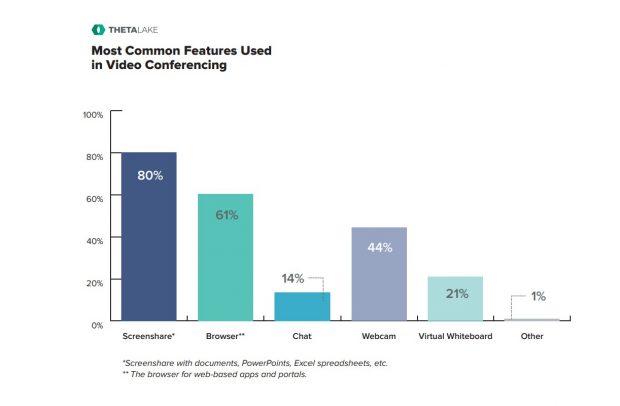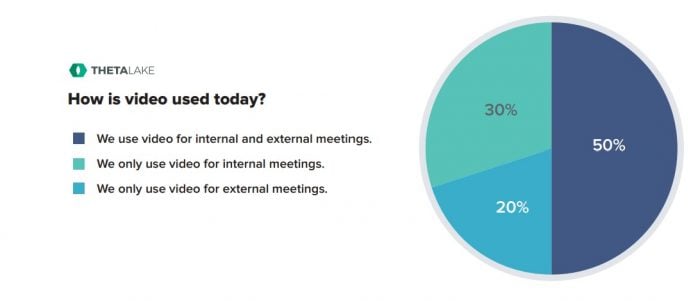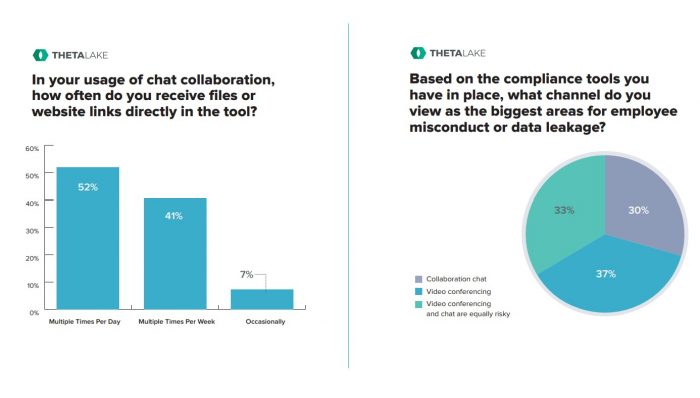In December 2021, Theta Lake partnered with Verint, forming a strategic partnership poised to tighten the customer engagement firm's grasp on collaboration security and compliance solutions. This occurrence prompted me to look a bit further into the company, and I learned a lot from a report I stumbled upon - one released by the firm.
Theta Lake's report serves as an annual benchmark survey, one that reached over 100 tech professionals across the financial services industry, a sector hit hard by contemporary yet necessary regulations to address unforeseen issues brought on by the Pandemic. Not to mention, there were a ton of cyber-attacks during the Pandemic, which worked to expose the vulnerable nature of most enterprises.

Stacey English is Director of Market Intelligence, Theta Lake, and gave me the low-down on the survey and why its findings could be fundamental in helping companies navigate various challenges created by or related to the Coronavirus Pandemic. She told me that it is now, thanks to plenty of factors - a critical need to address regulatory requirements and protect data in financial services.
Those challenges, she noted, can hurt an organizations’ ability to take full advantage of the collaborative tools they invest in. According to Theta Lake's survey - employees use plenty of collaboration tools. Between two and six collaboration tools to be exact. That accounts for 91 percent of survey participants who say they leverage Microsoft Teams, RingCentral, Webex, Zoom, and Slack.
"This results in a tremendous amount of content to manage and supervise, and we can expect to see this number remain steady, even with a gradual return to the office but remain clear that the Pandemic presented a tipping point for those in the collaboration industry."E
Enterprises will (almost) certainly have to step things up and ensure robust security for end-users/customers. There are a lot more findings where that came from, so let us take a deeper dive into what Theta Lake unearthed.
The Use of Video is Fast-Growing
According to the survey, video chats/conferencing are the fastest-growing business applications. The survey further notes that respondents see chat as making waves too. Comparing the two: in the first half of 2022, video usage has increased more than 70 percent, while chat rose by 50 percent.
Respondents also said they use a lot of 'webcam.' Other prominent features that garner a lot of attention in the enterprise UCC sector include screen sharing and whiteboards - even more than chat.

The features/capabilities, however, remain heavily restricted by organizations due to perceived risks, English said. English went on to say: organizations turn off these high-value functionalities because of the potential back-door they provide for bad actors like cybercriminals. Not to mention the challenges it might pose for IT managers.
"Despite a 70 percent increase in the usage of video tools, 83 percent of respondents are not leveraging all the capabilities of their video platforms."
The way English, and by proxy, Theta Lake sees things - organizations can have their cake and eat it, too. Businesses can adapt to the status quo, and she argues - do not have to choose between leveraging collaboration tools to the fullest and protecting internal assets.

She told GetVoIP News that folks can do all this - all the while - remaining compliant with various regulations in place to protect consumer data like GDPR.
Chat Content: the 'Biggest' threat to Privacy and Security
For the most part, the subheadline above should come as no surprise. Theta Lake found that a combined 93 percent of respondents have files and links shared with them via chat at least a few times a week. More than half of respondents reported receiving files and links a few times per day.
And there is an inherent risk involved in such an action, as English elaborated:
"Given the risks of receiving potentially malicious links in chat, it remains an area of huge risk for companies that do not have effective monitoring and reviews in place."
As we discover new ways to leverage UCC technology, bad actors will find more creative ways to intrude upon a company and consumer's right to privacy.
Circumventing Email to Share Confidential Data
Something that did come as a slight shock is that employees said they circumvent using email to share confidential information. This was alarming to English, too, who noted that nearly two-thirds (or 63 percent) of respondents indicated they had done so.
"That includes via other collaboration features including chat or webcam, or third-party applications such as Whatsapp, WeChat, or Signal."
Coming in at a close second, concerns related to screen-sharing (possibly) private information, with nearly 62 percent saying it caused them some form of angst.
Proceed with Caution and Education
As there is no clear and present roadmap on how to proceed with caution on conducting business "as usual" during a Pandemic - respondents are almost evenly split on their views of where potential misconduct or data leakages might happen. One-third (or 33 percent) said that chat and video remain "equally risky." Just over one-third (or 37 percent) said they see video as riskier than chat.
Osterman Research6 supports the notion of email circumvention, finding that 27% of respondents to a recent survey said one or more employees leveraged Microsoft Teams hoping to get around compliance requirements. This notion could very well leave regulators stuck with legitimate concerns surrounding misconduct - wondering how to mitigate the risk of breaches, etc.
According to a Thomson Reuters Regulatory Intelligence7 report: two-out-of-three firms expect to do something to address the issues that threaten their very exitance. Business leaders say that 0ver the next 12 months, they plan to put more time and resources that company-wide monitor misconduct.
There remains a lot of hard work to be done, but with employee training and the implementation of robust automation tools that do the heavy lifting for you - not much thought is required to stay compliant in the digital age. It does, however, take forward-thinking and the willingness to adopt cutting-edge (yet proven) UCC technologies to enable the future of work and business.
English cautions that manually performing many of these said tasks is not a sustainable solution in today's business climate.




